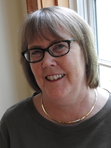Frantumaglia: A Writer’s Journey by Elena Ferrante
I’ve been reading these collected interviews, letters, and essays which address the Italian writer’s choice to be anonymous, her native city of Naples, and writing truths about women’s lives as mothers, daughters, and friends. Frantumaglia is a word her mother, a dressmaker, used to describe contradictory sensations, a jumble of fragments that depressed her, made her dizzy or her mouth taste like iron. Later, Elena Ferrante made the word her own. “The frantumaglia is the storehouse of time without the orderliness of a history, a story.” It’s often accompanied by a sense of loss, or the fear of it, and disorder that comes before words.
[image error]
Yasemin Çonger asks if she writes in a state of frantumalglia. She replies, “I have to start from an orderly place. I have to feel safe. But I also know that every book becomes in my eyes worth writing only when the order that has allowed me to begin shatters and the writing flows, and puts me, above all, at risk.”
Elena Ferrante returns often to theme of risk and breaking through a false sense of order. “A story has to push beyond your very capacity to write it, you have to fear at every line that you won’t make it.”
She mentions that finding the right tone can lead her through the rest of the work. “I describe common experiences, common wounds, and my biggest worry – not the only one – is to find a tone in writing that can remove, layer by layer, the gauze that binds the wound and reach the true story of the wound.”
For her, what’s tangled is most true. She means to break past stereotypes and conventions that follow a strict order. This applies not only to the subjects of her novels, but her writing style. Often when talking about writing, I mention the need for sloppiness and great forgiveness of oneself in early drafts. Care in fixing comes later. But while reading about her method I realized that for many the writing process isn’t just moving from writing without restraint to imposing some will and order. Rather, what we write down in a sort of flurry gives us clues about what to save, discard, and explore. At this stage of revision, we’re not just an expert coming in to clean up. Rather, we may be more reader than writing, scanning for clues in what’s on the page.
Elena Ferrante says: “In general the most urgent question for a writer may seem to be what experiences do I know I can be the voice of, what do I feel able to narrate? But it’s not so. The more pressing questions are: what is the word, what is the rhythm of the sentence, what is the suitable tone for all the things I know? …. without the right words, without long practice in putting them together, nothing alive and true emerges. …. Literary truth is the truth released exclusively by words used well, and it is realized entirely in the words that formulate it. It is directly proportional to the energy that one is able to impress on the sentence.”
For more of her thoughts on writing, you can read this interview in The Paris Review.





